Le comité de pilotage scientifique est l’entité chargée du leadership de l’Initiative Science pour le Bassin du Congo (CBSI).
Il est composé de 22 scientifiques de renommée internationale originaires de la République démocratique du Congo, du Gabon, du Cameroun, de la République du Congo, de la Guinée équatoriale, de la République centrafricaine, de la France, de l’Allemagne, du Royaume-Uni et des États-Unis.
Leur expertise englobent les domaines de la science du climat, la foresterie, l’écologie, l’hydrologie, l’étude du cycle du carbone, l’hydrologie, la science du sol, la science de la vie sauvage, la biodiversité, la botanique, la biogéochimie, la télédétection, le changement d’utilisation des terres, les sciences de la conservation, la gestion des terres, les interactions entre l’homme et l’environnement, la gestion des catastrophes et les sciences sociales de l’environnement.
Les coprésidents sont les professeurs Raphael Tshimanga de l’université de Kinshasa, RDC et Simon Lewis de l’université de Leeds et de l’University College London, R.-U..
Membres du comité

Dr Wilfried Pokam Mba
Chargé de cours, Université de Yaoundé, Cameroun
Wilfried Pokam Mba est enseignant de physique et chercheur à l’Université de Yaoundé I au Cameroun. Modélisateur climatique, il se concentre sur la variabilité et les changements climatiques en Afrique centrale et a publié plus de 50 articles scientifiques et chapitres de livres. Il était auteur principal du chapitre sur les changements du cycle de l’eau du sixième rapport du Groupe Intergouvernemental des Experts sur l’évolution du Climat. Il a également contribué au chapitre sur l’Afrique du sixième rapport d’évaluation. Pokam est membre du Groupe d’experts sur l’évolution du climat en Afrique centrale (GEAC), de l’Initiative Coordinated Regional Downscaling Experiment et du Projet de comparaison des modèles couplés (CMIP).

Professeur Lucie Temgoua
Enseignante-Chercheure, Université de Dschang, Cameroun
Lucie TEMGOUA est Maître de Conférences à la Faculté d’Agronomie et des Sciences Agricoles de l’Université de Dschang. Ses activités de recherche se focalisent sur les forêts d’Afrique centrale. elle occupe le poste de secrétaire permanent du centre d’études et de recherches en agronomie et biodiversité. Forestière de formation, ses activités de recherche dans le domaine de l’aménagement des écosystèmes forestiers et agroforestiers sont organisées autour de l’analyse de la dynamique de la biodiversité et des services écosystémiques dans les paysages forestiers anthropisés. Ses recherches portent également sur le changement climatique et notamment sur la contribution des systèmes agroforestiers à l’atténuation mais aussi à l’adaptation des agriculteurs. Elle est co-auteure d’une trentaine d’articles scientifiques.
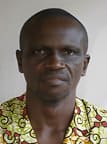
Professeur Cyriaque-Rufin Nguimalet
Maître de conférences, Université de Bangui, République centrafricaine
Cyriaque-Rufin Nguimalet is Senior Lecturer in Physical Geography at the University of Bangui, Central African Republic. His research focuses on hydrology and water resources, climate change and climate change adaptation, with peer-reviewed scientific papers published in international journals. His most recent publications focus on annual and multi-annual rainfall-discharge dynamics into catchments in the Northern Congo Basin, flood hazard occurrence, disaster risk reduction and the implications of low-flow regimes on people in the region. Since 2022 he has been a member of the Central African Group of Experts of Climate Change (GEAC).

Dr Lydie-Stella Koutika
Directeur et fondateur de Soil Care and Environmental Studies (SCES), Pointe-Noire, République du Congo
Lydie-Stella Koutika is a soil scientist, Director and Founder for Soil Care and Environmental Studies (SCES), Republic of the Congo with over 30 years of experience in applied research on agroecosystems and environment. Her research focuses on soil health and degradation processes to fight food insecurity, biodiversity loss and the harmful effects of climate change. She is a laureate of ‘African Union Kwame Nkrumah Regional Scientific Award for Women’ (2014), The World Academy of Science (TWAS) -Al-Kharafi Prize (2018), Glinka World Soil Prize, FAO GSP (2021). She is also a STC member for 4p1000 initiative (Soil for Food Security and Climate), Intergovernmental Technical Panel on Soils (ITPS (2025-2028), TG Data (2025-2028) Intergovernental Panel on Climate Change (IPCC), and Contributing Lead Author, Chap. XIII AR7 IPCC (2025-2029).

Professeur Jean Joël Loumeto
Professeur, Université Marien N’GOUABI, République du Congo
Jean Joël Loumeto est enseignant-chercheur spécialiste d’écologie végétale à l’université Marien N’GOUABI, Brazzaville et responsable du Laboratoire de Biodiversité, Gestion des Ecosystèmes et Environnement. Il est titulaire de deux doctorats en écologie obtenus en France en 1986 et 2002. Il a publié de nombreux ouvrages sur ces sujets, en particulier sur l’Afrique centrale. Il est l’ancien chef du département de biologie et physiologie végétales. Il est conseiller du gouvernement de la République du Congo en matière de développement durable et des changements climatiques. Il est également vice-président de l’Association Congolaise pour l’Évaluation Environnementale (ACEE) et Président de la Sous-Commission Environnement du Diocèse de Brazzaville.
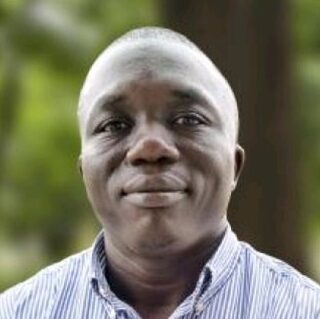
Dr Teodyl Nkuintchua
Responsable de la stratégie et de l’engagement pour le bassin du Congo, WRI Afrique, République du Congo
Teodyl Nkuintchua is the Congo Basin Strategy and Engagement Leader for the World Resources Institute. He is an international development professional with over 13 years of experience in the field of natural resources management and organisational development and leadership. He is responsible for advancing the WRI’s mission in the Congo basin by engaging with key stakeholders, from the most vulnerable groups through to influential decision makers. Teodyl has previously worked at the Field Legality Advisory Group in Yaoundé and at the Centre for International Development and Training at the University of Wolverhampton, UK. He is dedicated to capacity development initiatives for civil society organizations in Africa.
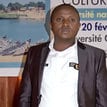
Professeur Michel Bisa Kibul
Professeur de Géographie politique et des Sciences politiques, Université de Kinshasa, RDC
Michel Bisa Kibul est professeur de Géographie politique et des Sciences politiques à l’Université de Kinshasa. Il est le Secrétaire scientifique de l’Observatoire de la Gouvernance en RDC et le Secrétaire général académique de l’Université Panafricaine de Gouvernance et Innovations. Il est titulaire d’un doctorat en sciences politiques et mène des recherches sur la gouvernance des terres et des ressources naturelles, la migration et la sociologie des conflits, la résilience des communautés, la construction de la paix et les impacts sociaux du changement climatique, à l’aide de recherches qualitatives et quantitatives sur le terrain. Il a publié plus d’une vingtaine d’études évaluées par des pairs sur la géographie politique de l’Afrique centrale.
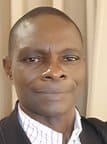
Professeur Corneille Ewango
Professeur, Université de Kisangani, RDC
Corneille Ewango is Professor of Tropical Forest Ecology and Management at the University of Kisangani, DRC. He was Scientific Director of the Centre de Formation et de Recherche en Conservation Forestière (CEFRECOF), a research and training centre in the Ituri Forest (2003-2006 and 2012-2017). He led the DRC team who mapped the central Congo peatlands, and is Project Scientist for the DRC Peatlands Management Unit and National Forest Inventories, providing scientific and technical support to government. He has published over 100 scientific papers and is a member of the Central African Group of Experts of Climate Change (GEAC). He is a recipient of the prestigious Goldman Environment Prize (2005).

Professeur Bila-Isia Inogwabini
Chercheur et professeur, Université suédois des sciences agricoles, Suède
Université Catholique du Congo, RDC
Bila-Isia Inogwabini is Professor of Biodiversity at the Catholic University of Congo, in Kinshasa. He is Visiting Scholar at the Swedish University of Agricultural Sciences at Uppsala. Inogwabini has a BSc in Physics, MSc in Ecology, MA in Advanced Applied Ethics and a PhD in Biodiversity Science. He has published several dozen scientific papers, book chapters and books. His work led to the creation of two new protected areas, the Ngiri Triangle and the Tumba-Lediima Nature Reserves, and the classification of the Ramsar site Ngiri-Tumba-Maindombe. He is the recipient of the UNESCO Young Scholar Award (2006) and the National Geographic Leadership in Conservation in Africa (2007).

Professeur Raphael Tshimanga
Coprésident de l’Initiative Science pour le Bassin du Congo (CBSI)
Directeur, Centre de Recherche en Ressources en Eau du Bassin du Congo (CRREBaC) et École Régionale de l’Eau, Université de Kinshasa, RDC
Raphael Tshimanga is Professor of Hydrology and Water Resources at the University of Kinshasa, DRC. He is Director of the School of Water and the Congo Basin Water Resources Research Center (CRREBaC, www.crrebac.org). He co-developed the Congo Basin Catchment Information System, a water resources management tool, and is author of more than 100 peer-reviewed publications. His is Co-Chair of CBSI and President of the Central African Group of Experts of Climate Change (GEAC). Currently he is also a Research Fellow under the Feature African Independent Research (FLAIR) programme of the UK Royal Society and African Academy of Science.

Professeur Maximiliano Fero Meñe
Directeur de recherche et professeur, Université nationale de Guinée équatoriale, Guinée équatoriale
Maximiliano Fero Meñe is Professor of Botany and Dean of the National University of Equatorial Guinea, since 2014. He holds two Masters, one in Conservation Biology (2009) and the second in Nature Management and Conservation (2009), as well as a PhD in Biology (2012). He has published widely on botany and the impacts of hunting in tropical forests. As Dean he manages aspects of policy, training, and advocacy for research, including linking the university to respected research groups at the regional and international levels. He is a member of the “Flora of Equatorial Guinea” project, contributing to the editing of a number of volumes, checklists and revisions of the local flora.

M Gaspard Abitsi
Directeur de pays – Programme de la Wildlife Conservation Society (WCS) au Gabon, Gabon
Gaspard Abitsi is Country Director of Wildlife Conservation Society Gabon. He is a conservation practitioner with almost twenty years’ experience working in partnership with the private sector, government representatives and the local community in Gabon. He is interested in understanding how various land use strategies, such as logging, mining, fishing, and protected area management, differentially impact wildlife, habitats, and local community livelihoods. He is a member of the Board of Directors of the Foundation for the Tri-National Sangha, Gabon’s national parks service Management Committee, and Congo Basin Forest Partnerships as co-leader for the College of International NGOs.

Professeur Alfred Ngomanda
Commissaire Général, Centre National de la Recherche Scientifique et Technologique (CENAREST) du Gabon
Alfred Ngomanda est Commissaire Général du Centre National de la Recherche Scientifique et Technologique (CENAREST) et professeur d’écologie forestière à l’Institut de Recherche en Ecologie Tropicale (IRET). Ses thématiques de recherche sont focalisées sur la compréhension des effets des changements environnementaux (passés, présents et futurs), d’origine naturelle ou anthropique, sur l’écologie et la biodiversité végétale des forêts du bassin du Congo. Il a publié plus de 50 articles scientifiques évalués par des pairs sur les forêts tropicales d’Afrique centrale. Il enseigne dans différentes universités et grandes écoles supérieures au Gabon (Université de Masuku et École nationale des eaux et forêts) et en Afrique centrale (Université de Kinshasa-ERAIFT), afin de renforcer les capacités dans la région.

Dr Georges-Noel Longandjo
Chargé de recherche, Université du Cap, Afrique du Sud
Maître de conférences, Institut Supérieur des Techniques Appliquées (ISTA), RDC
Georges-Noel Longandjo is Senior Lecturer at Institut Supérieur des Techniques Appliquées and Research Fellow at University of Cape Town. Trained as a physicist, his research addresses understanding the climate dynamics over central and southern Africa. He has published several peer-reviewed scientific papers in internationally leading journals. He has more than ten years of experience as a Research Scientist and a Remote Sensing/GIS professional. He is also involved in capacity building, training and institutional development. He was a contributing author on the 2021 IPCC Sixth Assessment Report (AR6) on “Weather and Climate Extreme Events in a Changing Climate”.

Professeur Carlos Nobre
Coprésident du Panel scientifique pour l’Amazonie
Professeur de sciences du système terre, Université de Sao Paulo, Brésil
Carlos Nobre is a Brazilian Earth System scientist with a PhD in Meteorology from the Massachusetts Institute of Technology (MIT), USA. Nobre’s work focuses on the Amazon and its impacts on the Earth system, publishing over 200 scientific papers. He chaired the Large-Scale Biosphere-Atmosphere Experiment in Amazonia (LBA). He was National Secretary for Research and Development Policies at the Ministry of Science, Technology & Innovation of Brazil and President of Brazil’s Agency for Post-Graduate Education (CAPES). He has been a member of the Intergovernmental Panel on Climate Change (IPCC). He is honoured as a foreign member of the US National Academy of Sciences, and member of the Brazilian Academy of Sciences.

Dr Gilvan Sampaio De Oliveira
Coordinateur général des sciences de la terre, Institut national de recherche spatiale (INPE), Brésil
Gilvan Sampaio is the Earth Sciences General Coordinator at Brazil’s National Institute for Space Research (INPE), where he has been for 28 years. His areas of expertise are biosphere-atmosphere interactions, climate modelling and paleoclimatology, publishing over 50 peer-reviewed scientific papers. From 2019 to 2020 he was the General Coordinator of the Center for Weather Forecasting and Climate Studies (CWPCP) at INPE, and before that head of the Operations Division (2016-2019). From 2009 to 2016 he was head of the Group of Biosphere-Atmosphere Interactions at the Earth System Science Centre at INPE.

Dr Jean-Jacques Braun
Directeur de Recherche, Institut de Recherche pour le Développement (IRD), France
Jean-Jacques Braun a Senior Scientist at the French National Research Institute for Sustainable Development. He is a geochemist and a specialist in integrated studies of the tropical Critical Zone, including initiating an observatory in Cameroon. He has published over 150 scientific studies. He has more than 25 years of experience in field studies, research and development projects, and team management. He co-manages the International Joint Laboratory « Dynamics of Central African forest ecosystems in a context of global change », and leads the development of the Centre in Environmental Biogeosciences, Cameroon. He leads the project “Global change impact on vulnerable carbon reservoirs” focused on the Ogooué river basin.
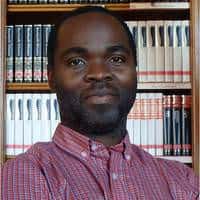
Dr Symphorien Ongolo
Directeur de Recherche, Institut de Recherche pour le Développement (IRD), France
Symphorien Ongolo est chargé de recherche à l’Institut de recherche pour le développement (IRD) depuis décembre 2020. Il est politologue et ses recherches portent sur les dynamiques de pouvoir, liens entre mondialisation et gouvernance des ressources naturelles dans les pays du Sud et en Afrique en particulier. Il a publié de nombreux ouvrages sur ces sujets, en particulier sur l’Afrique centrale. Avant de rejoindre l’IRD, il a travaillé comme chercheur postdoctorant Alexander von Humboldt au sein de la chaire « Politiques forestières et de conservation de la nature » à l’université de Göttingen (Allemagne). Il est titulaire d’un doctorat en sciences politiques de l’École polytechnique fédérale de Zurich (ETH).
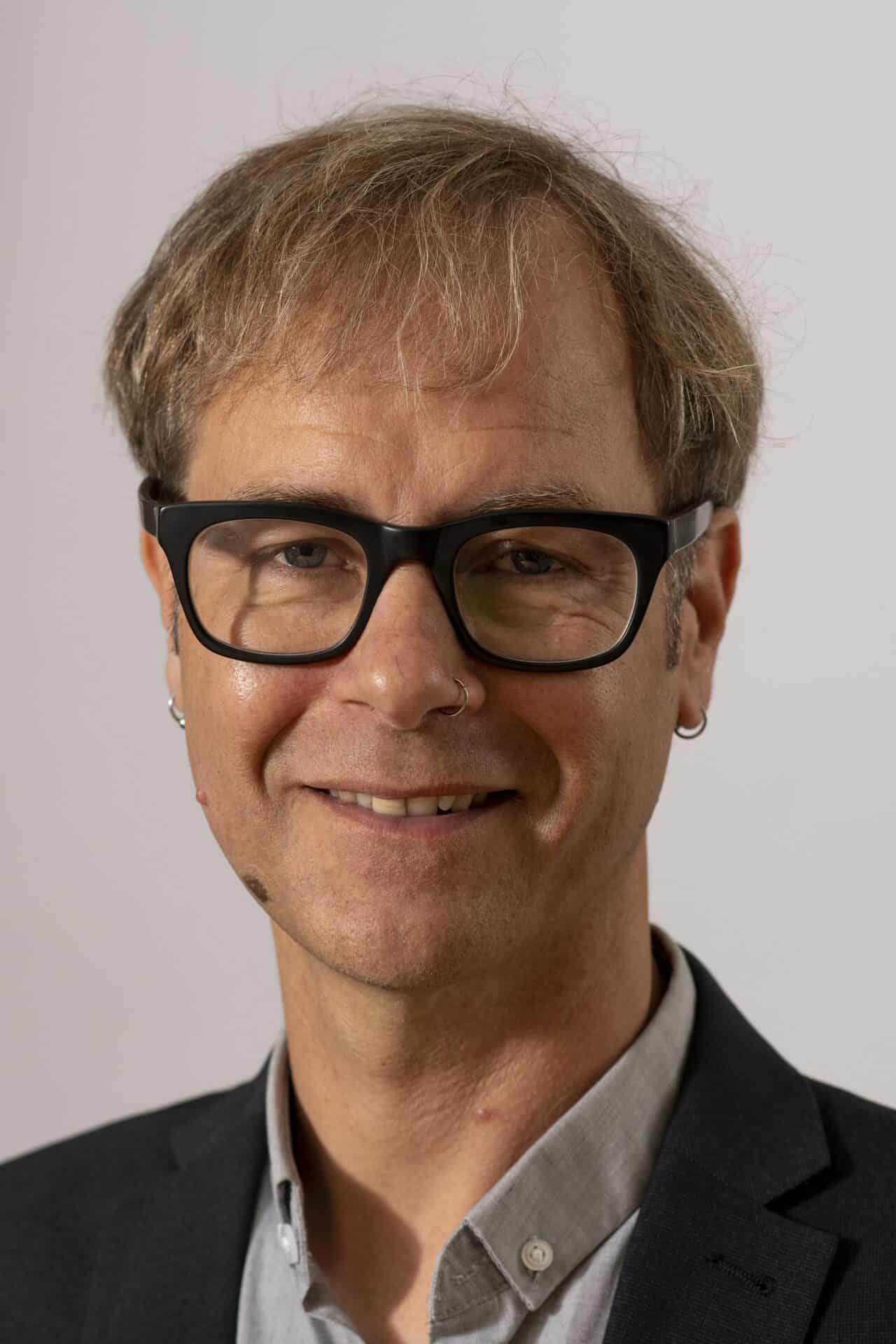
Professeur Simon Lewis FRS
Coprésident de l’Initiative Science pour le Bassin du Congo (CBSI)
Chaire en sciences du changement global à l’Université de Leeds et à l’Université Collège de Londres, Royaume-Uni
Simon Lewis is Professor of Global Change Science at both University College London and the University of Leeds. He is author of over 160 scientific publications on how humans are changing the Earth system, with major discoveries including quantifying the globally significant carbon sink in intact tropical forests, including the first evidence from the Congo Basin, and mapping the world’s largest tropical peatland complex in the heart of the Congo Basin. He co-founded and co-manages the African Tropical Rainforest Observatory, the global data repository and management tool forestplot.net, and the CongoPeat network. He was elected a Fellow of the Royal Society in 2023.
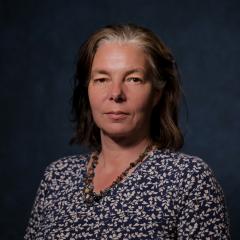
Professeur Nicola (Nicky) Anthony
Professeur, Université de la Nouvelle-Orléans, États-Unis
Nicola Anthony is Professor and endowed Chair in Wildlife Sustainability at the University of New Orleans. Her focus is on the conservation genetics and evolutionary diversification of central African tropical forest vertebrates. She has worked for over 20 years with the Université des Sciences et Techniques de Masuku (UTSM) in Gabon and in two international partnerships (CAB-Alliance and ECOTROP) engaging in conservation research, education and scientific training. She has delivered professional development workshops and international field schools that partnered students from the US and Gabon on joint research projects. She is committed to developing ways to promote biodiversity capacity building in the Central African region.

Dr Michael Keller
Chercheur en sciences physiques, USDA Forest Service, Institut international de foresterie tropicale, États-Unis
Michael Keller is a Senior Scientist with the US Forest Service International Institute of Tropical Forestry and Distinguished Visiting Scientist at NASA’s Jet Propulsion Laboratory. He has published over 200 scientific papers. He was the US scientific leader for the Large-Scale Biosphere Atmosphere Experiment in Amazonia (LBA) for ten years, followed by being Project Scientist for the National Ecological Observatory Network (NEON) its guiding the scientific development of the observatory, and then technical leader of the US-Brazilian Sustainable Landscapes Program. Keller is honoured as a Fellow of the American Association for the Advancement of Science and the Brazilian Academy of Sciences.

Mme Emma Torres
Vice-président pour les Amériques, Réseau pour le développement de solutions durables (SDSN), New York, États-Unis
Emma Torres is Vice-President for the Americas and Head of the New York office of the UN Sustainable Development Solutions Network (SDSN) led by Professor Jeffrey Sachs. SDSN is a global network of more than 1,700 universities and knowledge institutions committed to advancing the Sustainable Development Goals (SDGs) and other agreements such as the Paris Agreement on Climate Change. An economist by training, she also serves as Strategic Coordinator of the Science Panel for the Amazon (SPA), composed of more than 250 Scientists, which issued its report on the State of the Amazon at COP 26 in November 2021.
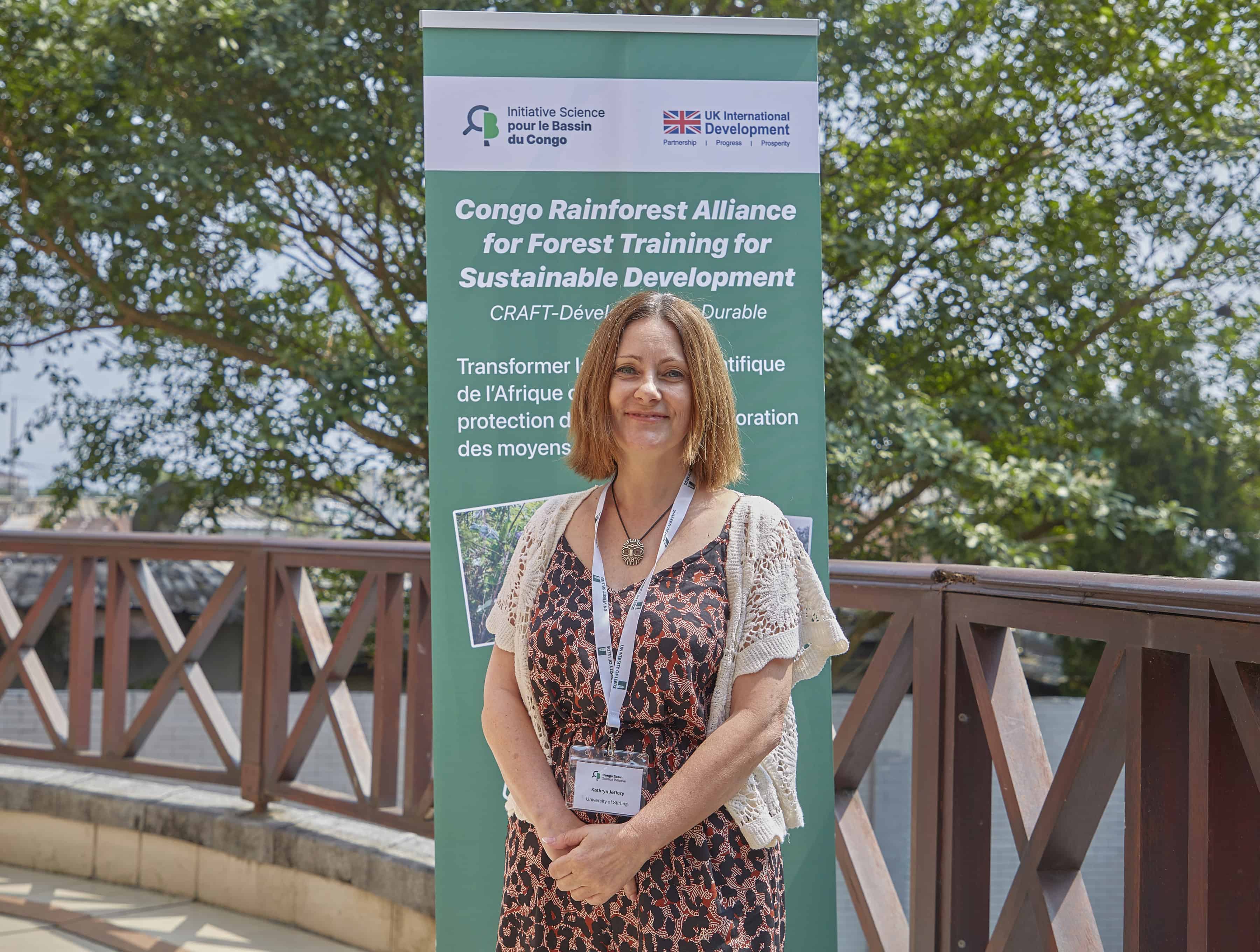
Dr Kathryn Jeffrey
Kathryn J. Jeffery est professeure associée à l’université de Stirling et à l’université de Montpellier, affiliée au laboratoire AMAP de Montpellier. Elle a plus de 25 ans d’expérience dans la recherche et la gestion environnementale en Afrique centrale, en particulier au Gabon, où elle est un membre clé de l’équipe de Stirling travaillant avec des partenaires nationaux sur le programme de recherche Stirling-Gabon, qui existe depuis 40 ans. Elle a également joué un rôle important dans le soutien apporté au gouvernement gabonais dans le cadre de la Convention-cadre des Nations unies sur les changements climatiques (CCNUCC) REDD+ et des mécanismes de paiement basés sur les résultats. Avec plus de 70 publications scientifiques à son actif, les recherches de Kathryn couvrent un large éventail de domaines de l’écologie tropicale, avec un accent particulier sur la recherche appliquée qui apporte des solutions concrètes aux défis environnementaux et éclaire les politiques.
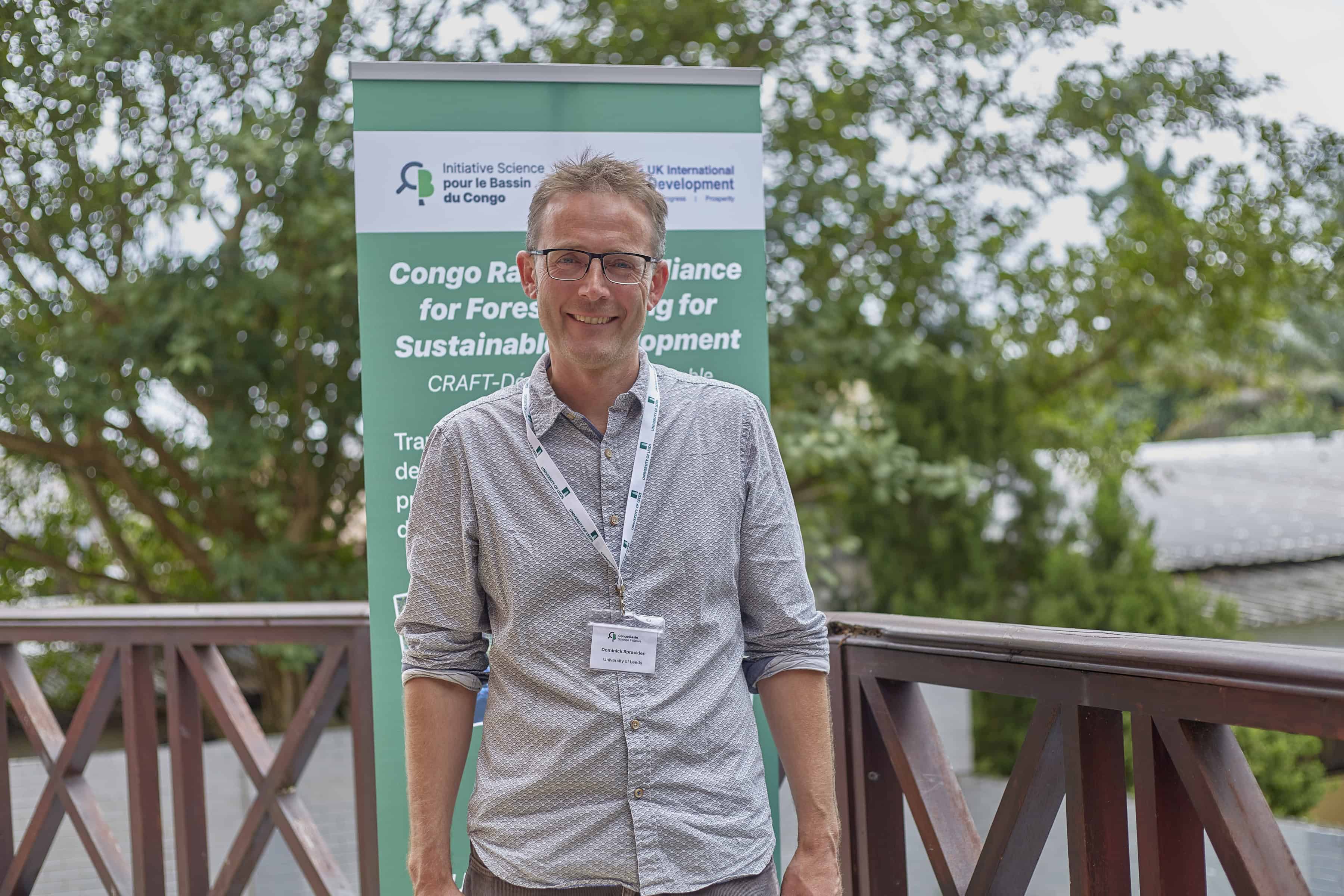
Professor Dominick Spracklen
Dom Spracklen explore comment la biosphère et l’atmoshpère terrestre interagissent — et comment ces interactions sont en train d’être remodelés par l’activité humaine. Il est auteur de plus de 200 papiers scientifiques couvrant la pollution de l’air, le changement climatique, les incendies de forêt, la déforestation, et la conservation de l’écosystème. Sa recherche a montré comment les forêts tropicales aident a réguler le climat local en refroidissant leur environnement, fournissant une pluie fiable et maintenant un air propre et non pollué. Ce travail fournit une évidence claire des avantages vitaux que les forêts tropicales en pleine croissance livrent pour les communautés locales. Dom travaille avec des organisations environnementales, à la fois au Royaume-Uni et à travers les tropiques, pour aider protéger et restaurer la nature.
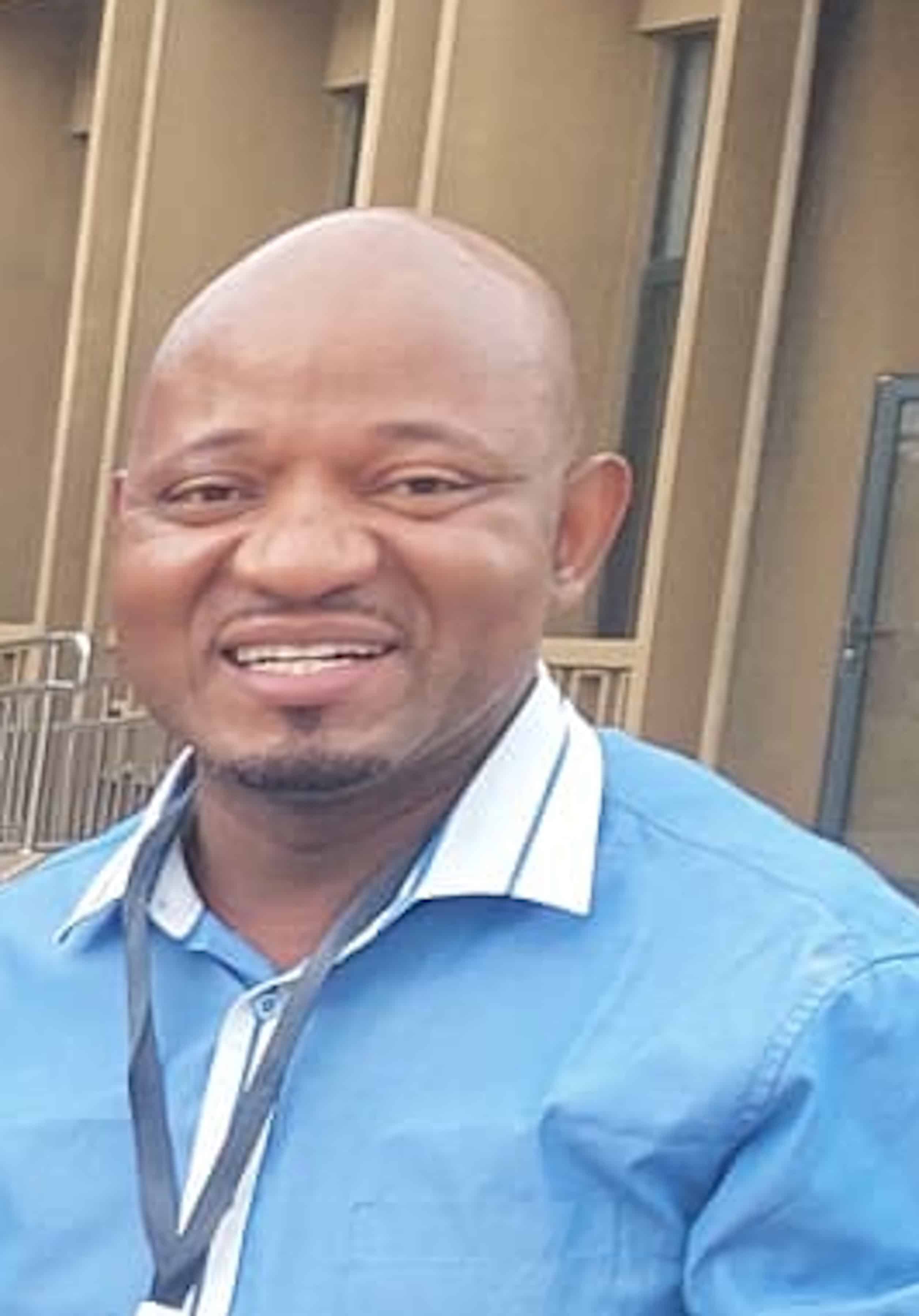
Professor Emmanuel Abwe
Emmanuel Abwe est professeur d’ichtyologie à la Faculté des Sciences Agricoles et l’École des Pêches et de l’Aquaculture à l’Université de Lubumbashi (UNILU); a Lubumbashi, RDC. Il est aussi Directeur adjoint responsable de la recherche à l’École des Pêches et de l’Aquaculture à UNILU. Il a défendu sa thèse en 2022 sur la diversité des poissons et la conservation dans le parc national de Kundelungu à l’Université KU Leuven (Belgique). Il est un collaborateur scientifique au Musée royal de l’Afrique centrale (Belgique) et au South African Institute for Aquatic Biodiversity (Afrique du Sud). Il a publié environ dix articles scientifiques dans lesquelles il décrit dix espèces de poissons du Bassin du Congo. Sa recherche se concentre surtout sur les études de la diversité, l’écologie, les génétiques et la conservation des poissons d’eau douce dans le Bassin du Congo.

Professor Mark Trigg
Professor Mark Trigg est un scientifique professionnel et un ingénieur diplômé avec expérience dans la hydrologie, hydrogéologie et hydrauliques, avec un intérêt particulier dans la gestion intégrée des bassins versants, le risque d’inondation et les problèmes de ressources en eau. Il a de l’expérience dans le travail dans plusieurs climats et pais. Le thème commun tout au long de sa carrière a été le mouvement de l’eau dans les environnements naturels et modifiés et la compréhension de ceux processus complexes ainsi que leur interactions avec l’infrastructure sur une gamme d’échelles géographiques.
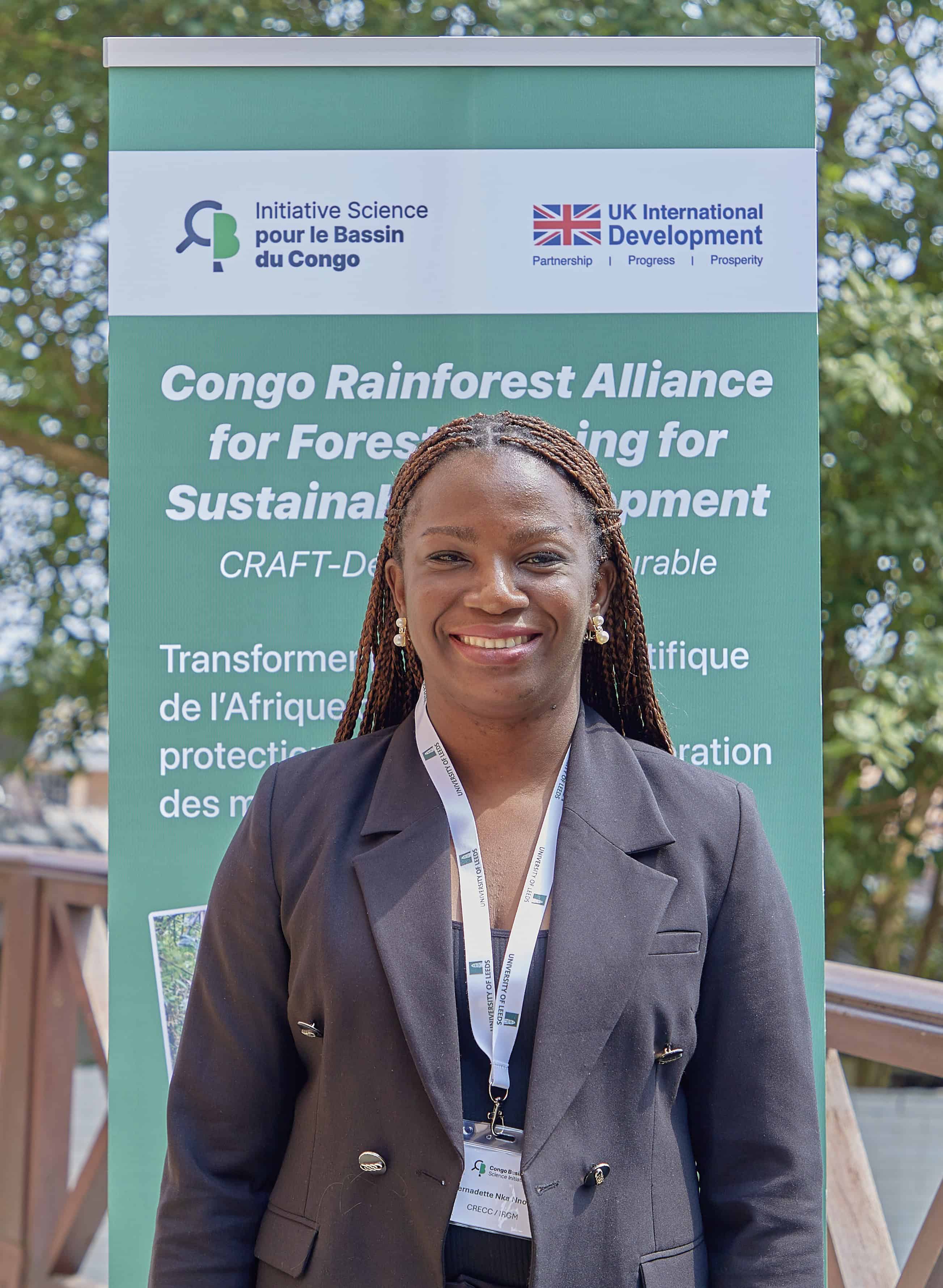
Dr Bernadette Nka Nnomo
Dr Bernadette Nka Nnomo est chercheuse senior au Centre de Recherche sur l’Eau et le Changement Climatique de l’Institut de Recherche Géologique et Minière, à Yaoundé-Cameroun, depuis 2017. Elle a obtenu son doctorat en hydrologie en 2016 à l’Université Pierre et Marie Curie de Paris, et son MSc en Eau et Environnement à l’Institut International d’Ingénierie de l’Eau et de l’Environnement de Ouagadougou en 2010. Ses principaux domaines de recherche et d’expertise comprennent la construction et la gestion de réseaux hydrométriques dans les pays en développement, les tendances des débits des rivières et des inondations dans les zones tropicales d’Afrique dans le contexte des changements globaux, la prévision hydrologique et l’hydrologie statistique, ainsi que les politiques et la gestion des ressources en eau. Dr Nka Nnomo a participé à de multiples projets de collaboration en recherche internationaux ces dernières années. Elle a récemment été nommée Membre du Comité Permanent sur les Systèmes d’Observation de la Terre et les Réseaux de Surveillance de l’Organisation Météorologique Mondiale en tant qu’experte du Cameroun. Elle a également été nommée co-responsable de l’observatoire d’hydrologie et d’eau douce de l’Alliance des Forêts Tropicales du Congo pour la Formation et le Développement Durable (CRAFT-Développement Durable).